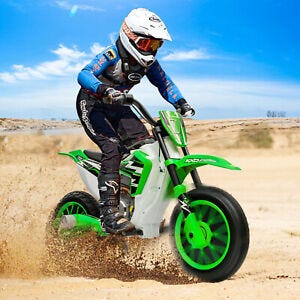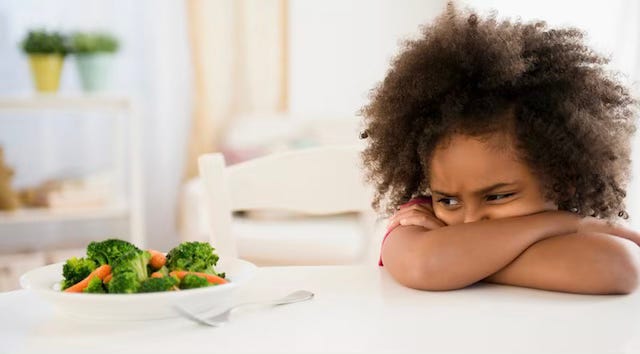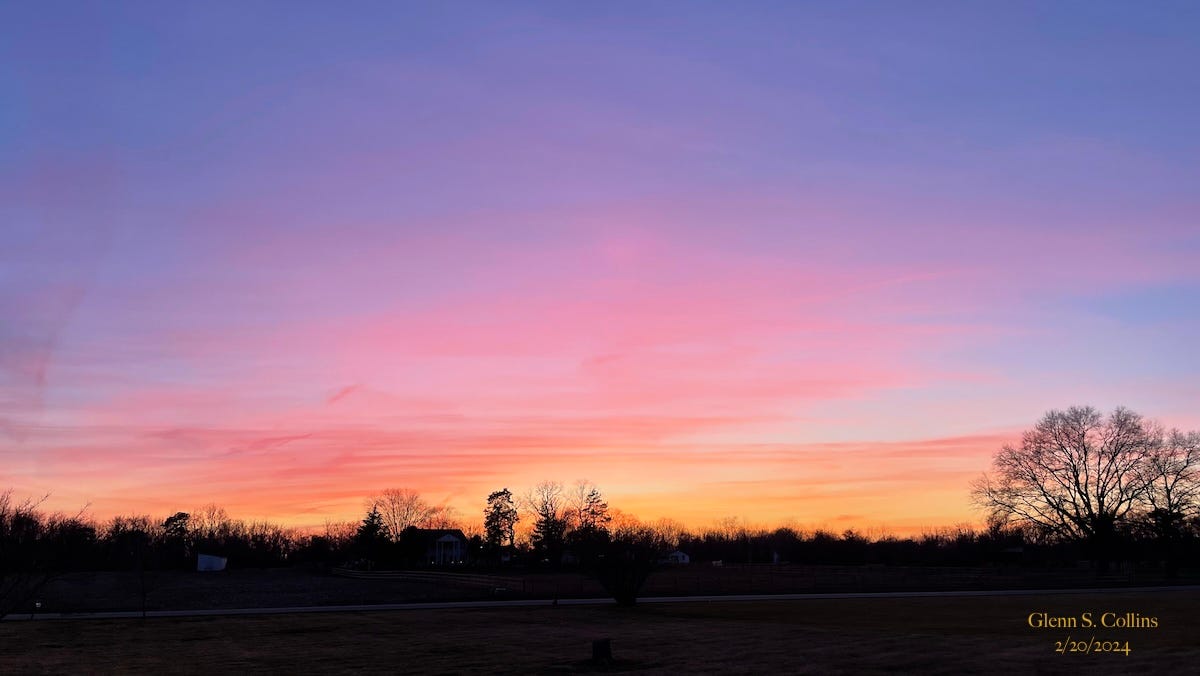Natural Consequences: What they are, why you should use them and how to do it right
Singing the praises of natural consequences
Parenting Matters #103
By: Catherine Lynch and Glenn Collins
Dear Awesome Parent,
Our preteen grandson recently had his electric dirt bike stolen.
And we don’t have much sympathy.
In fact, we think it’s a good thing.
That probably sounds heartless, but it’s a lesson we think he sorely needed to learn about taking care of his stuff.
Let’s back up a bit.
He got the dirt bike as a gift last Christmas. He’d been asking for one for years and was over the moon with happiness when he finally got it. He rode it as often as he could up and down the little street outside his house. He loved that bike!
But he wasn’t especially careful with it.
Truth be told, he was downright careless with it.
Whenever we visited it was usually lying on the ground only a few feet from the road. We warned him repeatedly not to leave it there unattended, and his mother said she’d told him the same thing many times.
But it was just too much trouble to put it away or to lock it up.
And then one morning it wasn’t there.
Someone had stolen it.
He was crushed.
But he had no one to blame but himself.
He experienced the natural consequence of leaving his expensive electric dirt bike unsecured next the road overnight:
No more dirt bike.
Natural consequences are your best friend.
Why is that?
Because the natural consequence does the “punishing”.
The educating.
Not you.
That means you’re blameless for the bad thing that happened to them…like the loss of an expensive dirt bike.
And that means your relationship with your kid doesn’t take a hit because of the natural consequences that happened. In fact, it might even get better if you remember to show empathy.
So let’s back up.
What exactly are natural consequences?
Natural consequences are consequences, ie. something that happens because of something else. And they’re natural, meaning not contrived. Someone didn’t make them happen. They happen naturally, all on their own, without you being involved.
Natural consequences are experiential learning - your kids are learning from their own experiences. That’s the most powerful kind of learning there is. We all know a single incidence of our kid burning their finger on a hot stove has way more impact than a hundred repetitions of “Don’t touch the stove, it’s hot!”
So embrace natural consequences! They preserve your relationship with your kid. You’re not the heavy; whatever bad thing that happened - you didn’t dole it out. It happed, naturally, all on it’s own.
You’re not to blame.
Their own actions are.
Here’s the rub. (You knew there was going to be one.) Sometimes natural consequences don’t happen when you want them to. Your kid refuses to wear his coat, and you secretly hope it rains so he’ll be more likely to wear it in the future when you tell him to. And then it doesn’t rain. Dang!
Natural consequences are also sometimes too extreme. You obviously don’t want them to be dangerous or truly harmful to your kid. You don’t want your kid hospitalized with third degree burns from finding out that a pot of boiling water is dangerous.
And of course there are times when natural consequences take too long to show up. Kid won’t brush their teeth? Cavities in the future are an obvious natural consequence, but that can take years and cause and effect won’t be obvious to them. So, parents have to be thoughtful about which natural consequences they allow to happen, and/or even encourage, and which ones they prevent.
You can also end up experiencing your kids’ natural consequence. If your kid goes out without a coat, he might experience the natural consequence of catching a cold. But then you have the consequence of having to take care of your sick and miserable kid. He might even give it to the rest of the family, which means pain for everyone and more work for you taking care of them. No thank you!
But we need to be careful with what we claim are “natural” consequences.
Just because we call something a natural consequence doesn’t make it one.
For example, “If you don’t eat your broccoli, you don’t get dessert” is not an example of a natural consequence.
It's certainly a consequence, but it’s a consequence you’re imposing on your kid.
In a truly natural consequence, you’re uninvolved in the consequence. You’re completely without blame. There was no punishment, and no feeling of being punished - not even a whiff of this being something unpleasant you doled out.
If your kid doesn’t get dessert because he didn’t finish his dinner, that’s not a natural consequence…it’s a logical consequence, and we’ll talk about that later. If you claim it’s a natural consequence (which implies that you are blameless and it’s their own fault), you’ll look bad and lose trust. Better to look for other opportunities to let natural consequences do their magic.
Unfortunately, we live in a world that’s mostly devoid of obvious natural consequences. And even when they do happen, there’s usually a way to minimize them. Keep an eye out for Natural Consequences, Part 2 where we’ll talk about how to recognize natural consequences, how to create them, and how to embrace them for the learning opportunities they are.
Questions:
Remember a time when you experienced a natural consequence that taught you something. Examples of natural consequences Catherine and Glenn have experienced:
Ignored the low gas warning, and then ran out of gas on the road.
Didn’t put on sunblock and then fell asleep in the sun. Got a bad sunburn.
Forgot to water the plants. They died.
Challenge:
Look for situations where you can let natural consequences do the heavy lifting. Once you start looking, you’ll find lots of opportunities. Look forward to the natural consequences of the natural consequences, i.e. the secondary consequences. For example, your kid may be crying about their stolen dirt bike and you get to show empathy, thus deepening your relationship.
Explain natural consequences to your kids and make it a habit as a family to start noticing and talking about both positive and negative examples you see or experience.
Let us know in the comments about a natural consequence you’ve experienced that had a memorable effect on you, or one that your kid experienced.





